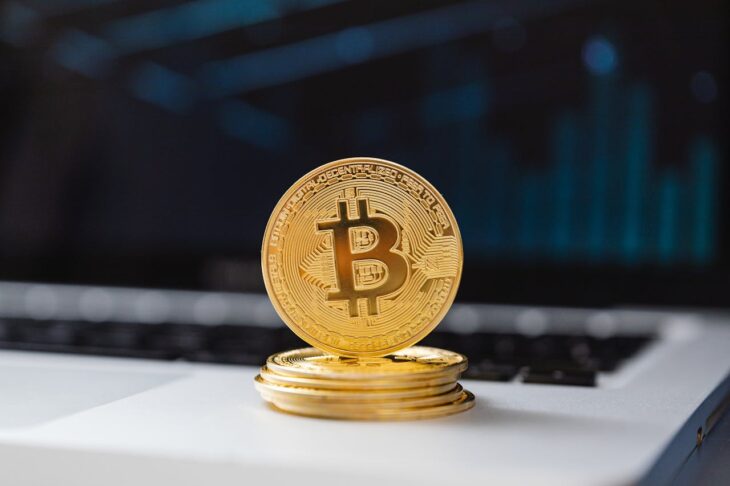
Digital Gold Rush: Why Countries Are Stockpiling Bitcoin in National Reserves
For centuries, nations have held gold in their central bank vaults as the ultimate reserve asset—a store of value independent of any government’s promises, immune to inflation, and universally recognized. Now, a growing number of countries are adding a digital counterpart to their treasuries: Bitcoin.
El Salvador made headlines in 2021 by becoming the first country to adopt Bitcoin as legal tender and actively accumulate it in national reserves. Since then, other nations have explored or implemented similar strategies. Bhutan has quietly mined and accumulated substantial Bitcoin holdings. The Central African Republic briefly adopted Bitcoin as legal tender. Even major economies are debating strategic Bitcoin reserves, with proposals emerging in the United States and Europe.
This shift represents more than cryptocurrency enthusiasm—it signals a fundamental reassessment of what constitutes a reserve asset in the digital age. Understanding why countries are taking this step reveals much about evolving concerns around monetary sovereignty, financial infrastructure, and the changing nature of value itself.
The Dollar Dominance Problem
The US dollar has dominated global reserves for decades, comprising roughly 60% of central bank holdings worldwide. This gives the United States extraordinary geopolitical power—the ability to enforce sanctions, influence global trade, and essentially export inflation to the rest of the world. For many nations, particularly smaller economies and those at odds with Western powers, this dependency is uncomfortable and potentially dangerous.
Countries have watched as dollar-based sanctions effectively froze Russia out of the international financial system following the Ukraine invasion. They’ve seen how SWIFT access—the messaging network that facilitates international banking—can be weaponized. These developments have accelerated the search for reserve assets that exist outside the dollar system.
Bitcoin, as a decentralized digital asset with no central authority, offers an alternative. No government can seize Bitcoin reserves remotely. No international organization can freeze blockchain transactions. For nations concerned about financial sovereignty, Bitcoin represents a hedge against dollar hegemony—a way to hold value that doesn’t depend on maintaining good relations with the United States.
This isn’t just theoretical concern for developing nations. Even allies of the US recognize the risk of excessive dependence on any single currency system. Diversification is basic financial prudence, and Bitcoin offers genuine diversification from traditional reserve assets.
Protection Against Currency Debasement
Many countries adopting Bitcoin share a common challenge: struggling or unstable domestic currencies. El Salvador dealt with dollarization and economic volatility. Argentina has experienced decades of peso devaluation and hyperinflation. Venezuela’s bolivar has become nearly worthless through mismanagement and money printing.
When your national currency is unreliable, Bitcoin becomes appealing despite its volatility. A currency that swings between $30,000 and $60,000 looks stable compared to one that loses 50% of its purchasing power annually through inflation. Bitcoin’s fixed supply cap of 21 million coins makes it immune to the arbitrary money printing that has destroyed so many fiat currencies.
For these nations, Bitcoin reserves serve as a form of monetary discipline and inflation protection. By holding an asset that cannot be inflated by government decree, they create a store of value that preserves wealth even as domestic currencies struggle. It’s essentially importing monetary credibility through technology rather than institutions.
This appeal is particularly strong for countries that lack independent monetary policy anyway. El Salvador, for instance, uses the US dollar as its official currency. Adding Bitcoin to reserves doesn’t complicate domestic monetary policy because they’ve already surrendered that tool. For them, Bitcoin offers potential upside without sacrificing control they never had.
The Generational Wealth Transfer
Demographics matter in monetary policy more than typically acknowledged. Younger populations worldwide show significantly higher cryptocurrency adoption rates and different attitudes toward money than previous generations. For countries with young populations—like El Salvador, where the median age is 28—Bitcoin aligns with their citizens’ technological fluency and financial preferences.
National leaders recognize that the financial system their grandparents knew may not be the system their grandchildren inherit. Bitcoin represents a bet on technological change—that digital assets will become increasingly important in global finance, and early adopters will benefit disproportionately.
This generational shift extends beyond individual preferences to infrastructure development. Countries building modern financial systems from scratch can potentially leapfrog traditional banking infrastructure, much as many developing nations skipped landline telephones and went straight to mobile. Building reserves around digital assets might position them advantageously for a future where digital value transfer is primary.
The Portfolio Diversification Thesis
From a pure portfolio management perspective, Bitcoin exhibits low correlation with traditional reserve assets like government bonds, equities, and even gold. Modern portfolio theory suggests that adding uncorrelated assets can improve risk-adjusted returns even if those assets are individually volatile.
Bitcoin has delivered extraordinary returns over the past decade—from hundreds of dollars to tens of thousands. While past performance doesn’t guarantee future results, the potential for appreciation appeals to nations seeking to grow their reserves rather than merely preserve them. Traditional reserve assets offer stability but minimal returns, and sometimes negative real returns after adjusting for inflation.
Countries adding Bitcoin to reserves aren’t betting their entire treasury on cryptocurrency. They’re making asymmetric bets—allocating small percentages that could deliver outsize returns if Bitcoin appreciation continues, while limiting downside risk through position sizing. El Salvador’s Bitcoin holdings, while significant symbolically, represent a small fraction of overall government assets.
This approach treats Bitcoin like venture capital for sovereign wealth—a speculative position that could pay off enormously while risking only a manageable amount. For nations with limited traditional reserves, this asymmetric opportunity can be particularly appealing.
Mining as Natural Resource Development
Some countries aren’t just buying Bitcoin—they’re mining it, treating cryptocurrency as a digital natural resource. Bhutan, blessed with abundant hydroelectric power, has been mining Bitcoin for years, accumulating substantial holdings as a sovereign wealth strategy.
This approach is ingenious for nations with surplus energy capacity. Rather than letting hydroelectric potential go unused or selling electricity at commodity prices, they can convert excess energy directly into a globally liquid asset. Mining Bitcoin becomes a form of renewable resource monetization—turning waterfalls into digital gold.
Paraguay, Iceland, and other nations with cheap renewable energy are exploring similar strategies. For them, Bitcoin mining represents economic development that doesn’t require building export infrastructure or finding international buyers. The blockchain provides instant global market access for their energy resources, transformed into digital assets.
This also appeals environmentally. Bitcoin mining has been criticized for energy consumption, but when powered by renewable sources that would otherwise be curtailed, it can actually support renewable energy development by providing consistent demand that makes projects economically viable.
The Technology Sovereignty Angle
Countries adding Bitcoin to reserves are also building technological expertise and infrastructure. Running nodes, securing private keys, executing transactions, and managing digital asset custody requires developing capabilities that will be valuable regardless of Bitcoin’s future price.
Nations that build this competency early position themselves advantageously for a future where digital assets are commonplace. They’re training government officials, developing legal frameworks, and creating regulatory structures for the digital asset economy. This knowledge infrastructure may prove as valuable as the Bitcoin itself.
This is particularly relevant for countries worried about being left behind technologically. Just as nations without internet infrastructure faced economic disadvantages, countries without digital asset competency might find themselves at a disadvantage in future financial systems. Bitcoin reserves force governments to develop these capabilities.
The Geopolitical Signal
Adopting Bitcoin sends a powerful message about a nation’s orientation and values. It signals technological progressiveness, willingness to challenge financial orthodoxy, and independence from traditional power structures. For smaller nations seeking to raise their international profile, Bitcoin adoption generates enormous publicity and positions them as innovators.
El Salvador’s Bitcoin adoption generated more international attention than virtually anything else the country could have done. Whether the policy succeeds economically, it succeeded in putting El Salvador on the global map and attracting international interest—including from cryptocurrency investors, technology companies, and Bitcoin enthusiasts worldwide.
This signaling value shouldn’t be underestimated. In an attention economy, small nations struggle to be noticed. Bitcoin adoption is a headline-generating move that costs relatively little but creates substantial soft power and reputational benefits.
The Risks Are Real
None of this means Bitcoin reserve accumulation is without substantial risks. Bitcoin remains volatile, regulatory frameworks are evolving, and the technology is still maturing. Countries betting national reserves on cryptocurrency could face significant losses if Bitcoin’s price crashes or if technical vulnerabilities emerge.
Critics argue that nations should focus on proven reserve assets and that Bitcoin’s volatility makes it unsuitable for central bank holdings. The IMF has explicitly warned countries against adopting Bitcoin, citing risks to financial stability and monetary policy.
These concerns are legitimate. Countries adding Bitcoin to reserves are taking genuine risks, betting that the potential benefits outweigh the dangers. For stable, wealthy nations, this might be reckless. For struggling economies with few alternatives, it might be rational risk-taking.
A New Chapter in Monetary History
Whether Bitcoin reserve adoption proves prescient or foolhardy will take years to determine. What’s already clear is that it represents a meaningful challenge to traditional thinking about reserve assets and monetary systems.
Countries accumulating Bitcoin aren’t necessarily abandoning conventional reserves—they’re experimenting with additions to the mix. They’re asking whether the characteristics that made gold valuable for millennia—scarcity, durability, independence from governments—might apply equally to a digital asset with similar properties.
The digital gold rush is underway, and while it may not replace traditional reserves, it’s already changing the conversation about what money is and what assets nations should hold. That alone makes it a development worth watching—and for some countries, worth betting on.

 Bitcoin
Bitcoin  Ethereum
Ethereum  Tether
Tether  XRP
XRP  USDC
USDC  Solana
Solana  TRON
TRON  Lido Staked Ether
Lido Staked Ether  Dogecoin
Dogecoin